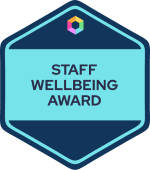How well do you know yourself? Amy Marsh examines how to better understand ourselves, our relationship with others, and why it matters.

Think back to a time when you got some feedback that triggered you. What was it that made your reaction so extreme? In the book Difficult Conversations, the authors argue that every difficult conversation is three conversations.
The last is often the least easy to recognise — I am upset because you did something wrong rather than because of my identity. Not necessarily. If you unconsciously feel like whatever happened reflects on you in a way that contradicts your view of yourself, that provokes a strong internal reaction.
Your identity determines how you see yourself and affects how you see others.
Say you pride yourself on being an approachable and supportive teacher and get feedback that a student requests to move class because they fear you. You may be upset that the student feels that way. It may be challenging to be approachable. That may cause you to be defensive and deny the feedback rather than sit with the contradiction.
If you aren’t aware of what is important to you, it’s harder to notice and interpret your reactions. It also makes it harder to see your biases in situations. This could be anything from dealing with an incident in your classroom between students to interactions with colleagues.
Our identity is formed from many factors, some of which we can control and others we can’t. The following contribute to your identity.
| Gender | Family |
| Nationality | Occupation |
| Values | Race |
| Beliefs | Hobbies |
How important each is to you varies between individuals and their experiences, and your identity changes over time as you and your priorities change.
If you are asked to define your identity, your response may change depending on who, where and when you are asked. That’s because your identity could be determined by other people, your job, your skills or several other aspects. We define who we are based on the context; who we see ourselves as at work matters for our interactions and behaviours.
Your identity determines how you see yourself and affects how you see others. Emotions impact our colleagues and friends, and it can be hard to manage these if you don’t always recognise your emotional triggers.
Better knowing yourself means recognising your strengths and being able to draw on these in the classroom. It means more awareness of areas for development and where to focus your professional development. Am I impatient and not allowing sufficient thinking time in class? Do I need to raise expectations for some of my students because I am lowering their standards to be inclusive and supportive?
Reflecting on our unconscious biases can also help to dig into how we unknowingly behave in class and the impact that may have on student. For example, expecting girls to be able to write more fluently than boys can lead teachers to grade their work more harshly. What things are you assuming without knowing it? How could you find those out?
 Staff Wellbeing Award
Staff Wellbeing AwardThe Staff Wellbeing Award promotes a positive and healthy working community to support staff with personal and professional development.
Better awareness is not just good for those you work with. Aligning your behaviours with your values, beliefs, and identity enables you to lead with a sense of purpose and better understand how to work with others. It is also correlated with feeling better in your workplace, including an improvement in contentment and wellbeing (Sutton, Williams and Allinson, 2015).
Dr Tasha Eurich has written extensively on self-awareness, including the distinction between internal and external. Internal self-awareness is essential, but we also need to be aware of how others see us and how we are perceived so that we know what impact we are having. Her book, Insight, gives practical advice on developing self-awareness.
Her popular TED Talk highlights the difficulty in separating our unconscious biases from our behaviours and how spending time dwelling on ‘why’ can cloud self-perception. She instead recommends asking yourself ‘what’.
This allows you to observe yourself and be constructive about the way forward rather than dwelling on why something has happened, or you feel a certain way. In the book Belonging, the first chapter concludes that there is a need for self-awareness to behave emotionally intelligent. We all want to work with emotionally intelligent people: the first step is to know who you are.
Think back to a time when you got some feedback that triggered you. What was it that made your reaction so extreme?
Counter-intuitively, you need to rely on others and reflect on yourself to better understand yourself. Our biases and intentions cloud our view of ourselves, and sometimes you need somebody else to hold up a mirror and show you that what you do is not always in line with what you say. Here are some suggestions for how to improve self-awareness.
Dr Tasha Eurich suggests the 'Seven Pillars of Insight' below. Try writing down how you would describe yourself concerning each aspect and then share these with a friend or colleague: do they agree with what you have written, and what does that tell you?
Given the benefits of understanding yourself, these activities are worth investing time in. If you work in a team, encouraging everybody to seek feedback and sharing can also support team building and facilitate positive interactions. Self-awareness, like other skills, can be improved, but it takes deliberate and ongoing practice.